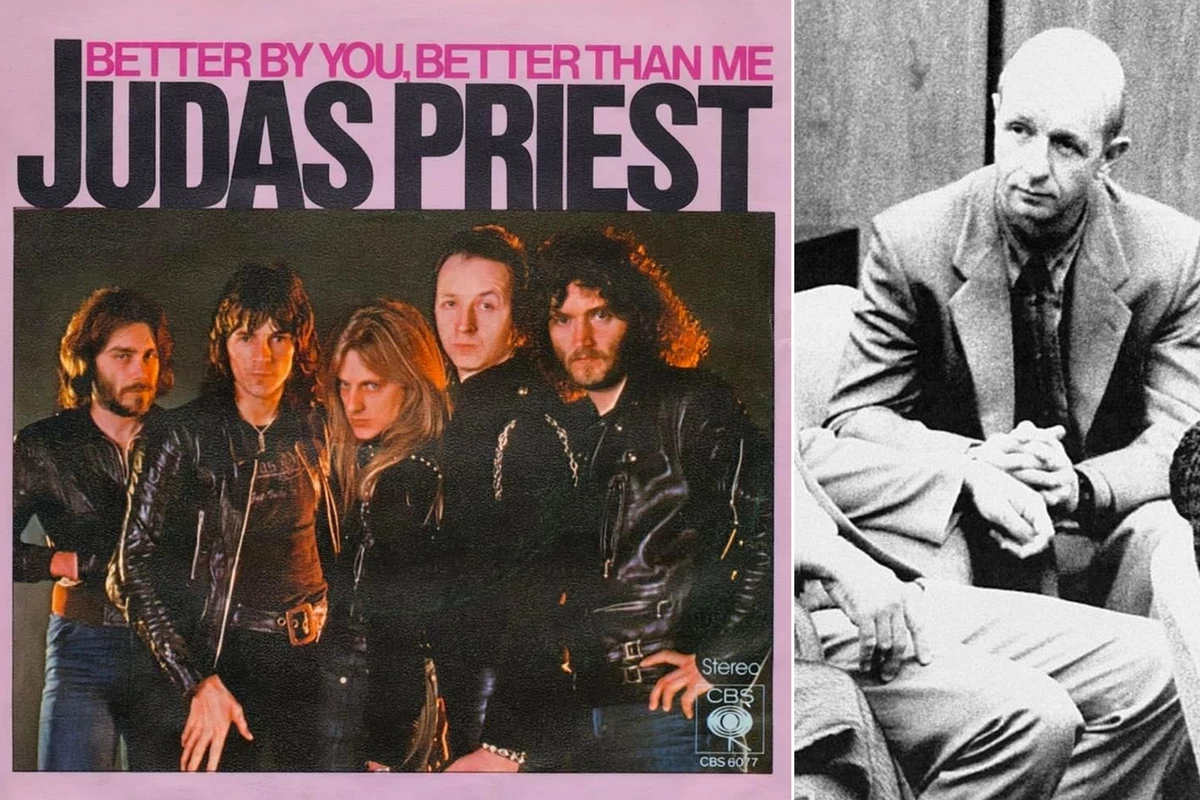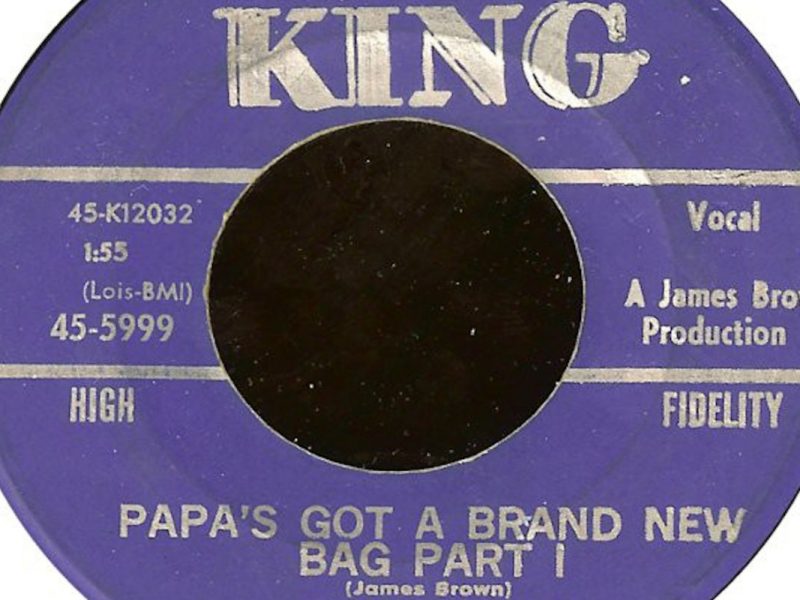Judas Priest was likely just appeasing a record label when they released a cover of Spooky Tooth’s “Better by You, Better Than Me” on Jan. 27, 1978. The lead single off Stained Class would come back to haunt them more than a decade later, however, as the focal point of a high-profile lawsuit involving the death of two young men.
Judas Priest graduated to a major label for 1977’s Sin After Sin and had begun including a cover song on each album at the behest of Columbia Records. Sin After Sin contained an electrified take on Joan Baez’s “Diamonds and Rust,” while the U.S. release of Hell Bent for Leather featured a fan-favorite cover of Fleetwood Mac’s “The Green Manalishi (With the Two-Pronged Crown).”
Sandwiched between those LPs was Stained Class, spearheaded by “Better by You, Better Than Me.” The song failed to chart and seemed destined to languish in obscurity. For 12 years, it did just that. “Better by You, Better Than Me” gained notoriety in 1990, when the parents of James Vance and Raymond Belknap sued Judas Priest for allegedly hiding subliminal messages in their songs that convinced the two men to make a suicide pact.
The 20-year-old Vance and 18-year-old Belknap attempted suicide with a shotgun on Dec. 23, 1985, after drinking, smoking marijuana and listening to Stained Class on repeat for hours in Belknap’s bedroom in Sparks, Nev. Belknap died instantly. Vance survived but was left disfigured. He died of a methadone overdose in 1988. Before then, Vance wrote a letter to Belknap’s parents in which he stated, “I believe that alcohol and heavy metal music such as Judas Priest led us to be mesmerized.”
The families sued Judas Priest for a combined $6.2 million and accused them of backmasking messages throughout Stained Class, such as “Try suicide,” “Sign my evil spirit,” and “Fuck the Lord, fuck all of you.” The families claimed that “Better by You, Better Than Me” contained an exhortation from Rob Halford to “do it” if played backward.
“When the band and I first heard that this was what we were charged with, we could not believe it,” Halford wrote in his 2020 memoir Confess. “What was this bullshit? It was so far-fetched that we were baffled: Why the hell would we ever do that? Surely nobody in the world could take this rubbish seriously?”
Listen to Judas Priest’s ‘Better by You, Better Than Me’
Despite its heavy subject matter, the plaintiffs’ attorneys treated the legal process with little reverence. “As soon as the case began, it became evident that, where British courts are all about soberly finding the truth, American trials are essentially an adjunct of showbiz. It was clear from their lead attorney’s opening statement,” Halford remembered. “‘Your honor, this case is all about these poor families screaming for vengeance!’ he told the judge. ‘They have come here to defend their faith! They don’t want to be left in the sad wings of destiny.'”
Judas Priest was not the first rock act to go to court over their lyrics. Ozzy Osbourne had recently endured a similar lawsuit wherein he was accused of driving a teenage fan to end his life with the song “Suicide Solution,” though the judge ruled in his favor because his lyrics were protected under the First Amendment. Judas Priest could not use the same line of defense, as Judge Jerry Carr Whitehead determined that “subliminals” didn’t constitute actual speech and so were not protected.
Instead, the band rigorously dissected its songs before the court to prove there was no foul play. Halford sang the chorus to “Better by You, Better Than Me” on the witness stand and played other so-called “subliminals” from the album, which amounted to gibberish. “Invader” apparently contained the phrase “Look Ma, my chair is broken!” while “Exciter” included the words “I, I, I asked her for a peppermint!” If the backmasked “do it” appeared on the record, Judas Priest and their attorneys argued, it was a purely coincidental audio glitch.
Ultimately, the judge sided with the band, but it wasn’t an outright victory. “The ‘do it’s on the record were subliminal because they were only discernible after their location had been identified and after the sounds were isolated and amplified,” Whitehead argued in his ruling. “The sounds would not be consciously discernible to the ordinary listener under normal listening conditions.”
Halford came away “dissatisfied with the verdict. I still am. The judge’s summary, to me, merely stated that their lawyers hadn’t proved their case adequately. It wasn’t the total vindication we needed and deserved.”
The closing of the case finally allowed Judas Priest to ditch their courtroom duds and don their leather and spikes once more. They released the critically acclaimed Painkiller and then embarked on a hugely successful tour in September 1990. Judas Priest commemorated their legal victory at their tour kickoff by playing “Better by You, Better Than Me” for the first time since 1979.
Judas Priest Albums Ranked
They don’t call ’em Metal Gods for nothing.
Should Rob Halford Have Given Solo Songs to Judas Priest?



